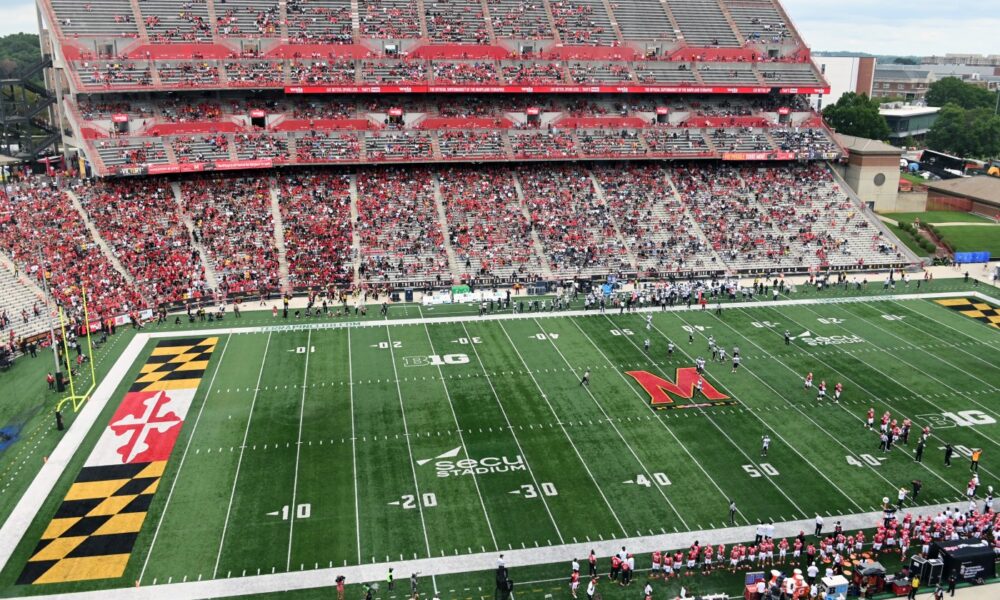The University System of Maryland Board of Regents convened on October 6, 2023, for a special closed-door meeting to assess a substantial athletics-related contract, which is believed to pertain to a proposed $2 billion investment in the Big Ten athletic conference. The board engaged in discussions with legal counsel regarding the implications of this potential deal, which is expected to involve a significant stake in the conference.
During the meeting, Board Chair Linda Gooden indicated that member institutions of the Big Ten Conference, including the University of Maryland, are set to vote on a proposal that could impact the Board’s responsibilities. The meeting was called on short notice, highlighting the urgency surrounding the matter. Gooden stated, “Given the short notice, we have requested to meet and seek legal advice and legal counsel on the board’s role and authority regarding this matter.”
The Board of Regents is tasked with overseeing the financial and academic operations of the 12 institutions within the University System of Maryland, including the flagship College Park campus. Reports suggest that the Big Ten Conference is negotiating an agreement with UC Investments, which manages the University of California Pension System. This deal would grant UC Investments a 10% stake in the Big Ten over a period of 20 years, with member institutions expected to receive a share of the revenue generated from this arrangement.
The proposed funds would derive from various sources, including sponsorships, media rights, and other revenue streams associated with the 18 schools in the conference. This diverse geographical range spans from Maryland and Rutgers on the East Coast to the University of Southern California, UCLA, and the University of Washington on the West Coast.
As discussions unfold, not all stakeholders are in agreement regarding the deal. U.S. Senator Maria Cantwell of Washington expressed concerns in an October 10 letter to Darryll J. Pines, President of the University of Maryland, regarding the implications of involving a private investor. Cantwell warned that such a partnership could threaten university assets and impact tax-exempt statuses. She emphasized that private equity firms often prioritize profit over academic integrity, stating, “The primary goal of these companies is to make money for the firm, which is unlikely to align with the academic goals of your university or its obligations as a not-for-profit organization.”
In light of these concerns, officials from at least one other state, the Michigan Board of Regents, have already rejected the idea of private equity involvement in college sports, according to the Detroit Free Press.
On the same day, the Big Ten Conference released a statement from its presidents and chancellors, defending the negotiations. The statement clarified that the discussions are aimed at enhancing both the academic and athletic excellence of the conference. “Over a year ago, we instructed the conference to undertake a comprehensive process, alongside our members, to innovate for the future and extend the conference’s legacy,” the statement read. It added that UC Investments would serve as a “non-profit partner,” distinguishing it from traditional private equity interests.
The Board of Regents has yet to make any public decisions following the closed session. As these discussions continue, the focus remains on whether the proposed investment aligns with the long-term goals of the institutions involved, particularly in preserving the integrity of both athletics and academics for student-athletes.







